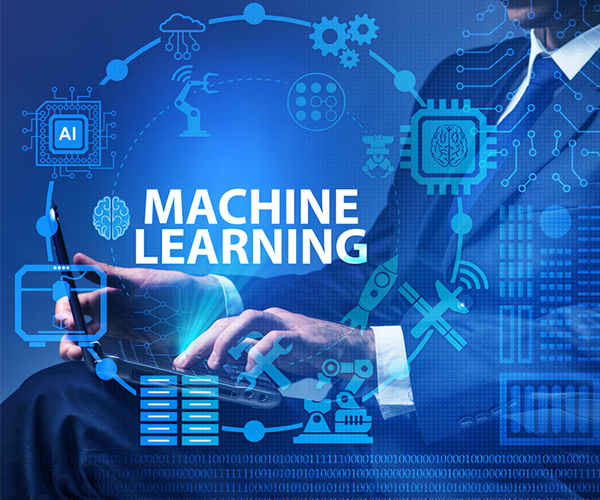Leverage our Machine learning, data science, and Artificial Intelligence expertise to drive better business outcomes, minimizing downtime, identifying outliers, and outage predictions. Our team of Machine Learning experts and AI consultants will guide you through all the stages of development to create bespoke AI solutions that deliver tangible business results. Our Artificial intelligence consulting services are human-centered, outcomes-oriented, and pragmatic to empower you to become the leader in your field, unlocking more value from your data.

Machine Learning (ML) takes Robotic Process Automation(RPA) to the next level. In essence, RPA handles processing data (gathering, sorting, calculating and reporting), while ML begins to use it and mine it for its valuable insights. Automated processes operate based on the continuous analysis of incoming information, and learn to act smarter over time. This is especially beneficial for businesses dealing with large volumes of unstructured data, such as images, video and audio files and text files like PDF documents. ML is capable of gathering insights and improving them over time, while RPA executes them, working in tandem for best results. Depending on the exact nature of the task, our experts choose the type of automation with the best ratio of added value to cost of implementation. ML requires a larger investment than RPA, due to training data, a more robust infrastructure, and development work provided by highly skilled experts. The ROI is well worth it, however, thanks to deeper insights, better automated decision-making, and the ability to analyze both structured and unstructured information.

Machine Learning Use Cases

Fraud Detection
Banks and other financial organizations spend $2.92 against every $1 lost in fraud as the recovery cost. ML has a wide range of use cases and applications in this area. Machine learning techniques are applicable in enhancing the security of the transactions by detecting the possibilities of fraud in advance. Credit card fraud detection, for instance, is a proven solution for improving transactional and financial security. Deep learning solutions using Python or R programming language predict fraudulent behaviour. These solutions work in real-time to constantly check on the possibility of fraud and generate alerts accordingly. Classification algorithms effectively label the events as fraudulent or suspected to eliminate the chances of fraud.

Algorithmic Trading – Sentiment Analysis
Stock market variations depend on several factors, with the sentiments of people being one of the crucial factors for stock price prediction. Organizations worldwide use machine learning techniques and models to conduct sentiment analysis for stock market price prediction. Various data sources such as social media provide data for performing sentiment analysis. The application of Natural Language Processing(NLP), along with classification and clustering algorithms, then classify a stock into three categories as negative, positive, or neutral.

Email Monitoring
Email is the most common tool for personal and professional communications. They are also the primary platforms used for malware or other cybersecurity attacks. Phishing emails extract sensitive information by tricking the end-users. Machine learning techniques are instrumental in the detection of cybersecurity attacks by conducting real-time email monitoring. Natural Language Processing analyzes email content and determines the probability of a phishing attempt Anomaly detection using ML technology is also effective in performing email monitoring.

Healthcare
ML in Healthcare typically processes huge datasets from Imaging(scans and X rays) and Pathology(tissue and blood samples) beyond the scope of human capability, and then reliably converts analysis of that data into clinical insights aiding physicians in diagnosis and treatment. Machine learning helps in planning and providing care, ultimately leading to better outcomes, lower costs of care, and increased patient satisfaction. Computer-assisted diagnosis (CAD), an application of machine learning, is also be used to review the mammography scans of women in predicting cancer.
